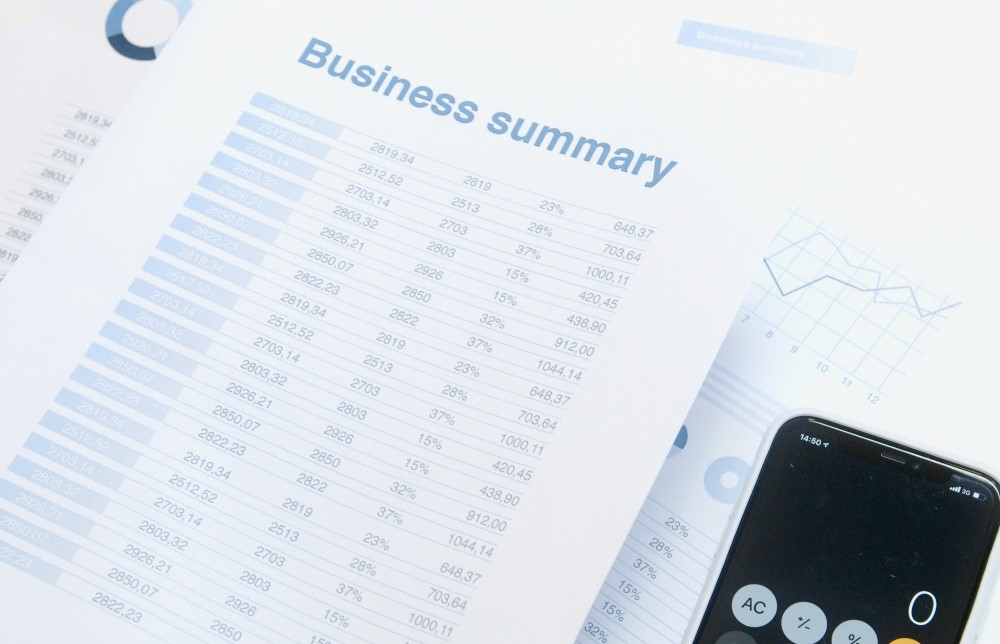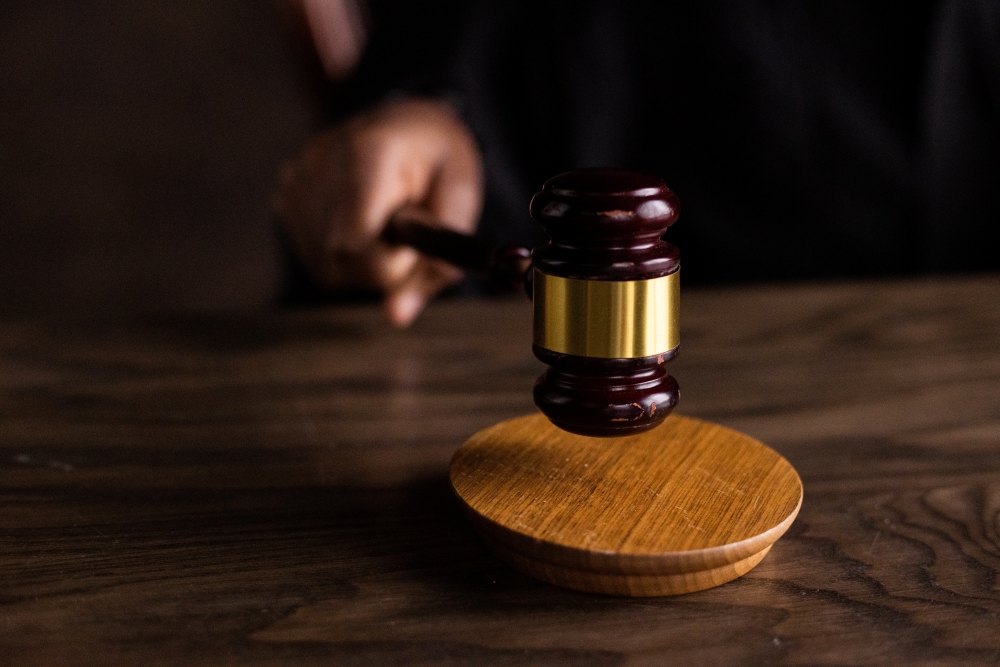What happens if you can’t pay an overdrawn Directors Loan Account?
Dealing with company liquidation can be stressful, so we’re here to answer your most important questions. One question we often hear is, ‘What happens if you can’t pay an overdrawn director’s loan account?’ In this blog, we’re going to answer that for you.
If you’ve found this blog and you’re not sure what an overdrawn directors loan account is, don’t worry. We’re here to help you assess your company’s financial situation.
What is a director’s loan account?
It’s quite normal for companies to have a director’s loan account, but it’s important to know how to manage it correctly. When a director takes money from a limited company, the account becomes overdrawn, and the director owes money. In contrast, when a director puts money into a limited company, the account becomes in credit.
Directors’ loan accounts can be advantageous for tax benefits if they are correctly managed. The best way to use a director’s loan account is to keep it in credit or at zero. This means that company directors do not owe any money to the limited company.
Overdrawn directors’ loan accounts can be a huge problem when a company enters liquidation. This is because they are then labelled as an asset of the company, and directors are required to pay back the money.
What happens when your company becomes insolvent?
Becoming insolvent means you cannot pay your business debts when they fall due. This may include your corporation tax, bills, supplier costs and much more. It’s a good idea to seek advice early when you believe you are facing insolvency. Failing to act quickly may result in compulsory liquidation.
If you are the director of a business facing insolvency, it is imperative that trading ceases immediately. This will mitigate the risk of the company taking any further credit agreements that they will struggle to pay back and reduces the chance of wrongful trading accusations.
If, at the point of becoming insolvent, you have an outstanding director’s loan owing, there will be a negative impact on the creditors. After all, were this money still held within the business, the funds could be used to repay some of the business’s debts.
What does the liquidator do next?
The liquidator working on the process will be looking to ascertain the best outcome for the creditors, and any overdrawn director’s loan accounts will be taken into consideration. In fact, they will be looking to have that money repaid to the business so that it can be used towards their repayment. The liquidator will see the director as having spent the creditor’s money.
As a result, the liquidator will most likely want this money brought back into the business, as this would be in the creditors’ best interests. It’s highly likely at this stage that the director is going to be unable to repay the money back.
If you cannot repay it from personal funds, it is important the company does not seek to write the loan off as a bonus or dividend payment as this could be viewed as a ‘preferential payment’. Furthermore, any additional bonus or dividend payments should be avoided as this would effectively increase the debt on the overdrawn director’s loan account.
What happens to an overdrawn director’s loan account in liquidation?
If your business is still trading and your director’s loan account is overdrawn by more than £10,000, you will have to deal with S455 tax. S455 tax is at 32.5%, so this is a serious consequence of having an overdrawn director’s loan account. You are required to pay corporation tax on top of this.
Unfortunately, the problem of an overdrawn loan account becomes even worse if you then place the business into liquidation. Once the liquidation process begins, the insolvency practitioner will be knocking on your door, requesting the money you owe from your director’s loan account. This personal liability will happen regardless of the type of liquidation you enter, compulsory or voluntary.
Some will have a directors loan of £10,000 or £20,000, and others might owe £300,000. Regardless of how much money you owe, this money is still labelled as an asset of the company, and therefore, you owe it back. The role of the licensed insolvency practitioner is to recover that money from you and distribute it back to your company creditors. The liquidator may attempt to raise funds through the realisation of company assets.
What happens if you don’t pay back the Director’s Loan Account?
This really does depend on your personal situation.
Suppose you owe a directors loan and have personal assets, like properties, a family home and buy-to-lets. If company directors fail to pay any of the money, the appointed liquidator will likely start legal action against the director personally. This is likely to end up in a personal bankruptcy battle, which shows how serious failing to pay a director’s loan can be.
If you have an overdrawn director’s loan account and are entering a liquidation, discussing this with the insolvency practitioner is imperative. Do not wait to see if the liquidator will find your overdrawn directors loan account – THEY WILL! Get it out on the table early and start to work on a solution.
Most licensed insolvency practitioners are commercially minded and want to get as much money as they can back for your company’s creditors by spending the least amount of money.
Let’s give you an example of an overdrawn director’s loan account
Let’s say you owe a £50,000 director’s loan account, and your house has a £100,000 equity. This would leave you vulnerable because if a liquidator were to force you, they would get the money back by forcing you into bankruptcy.
If this is the case for you, the best thing you can do is speak to the insolvency practitioner as soon as you can and organise a deal. The deal might be that they’ll give you 12 months to pay the £50,000. Or you can show them that you don’t have that money available. For example, you might be married, so the house equity is halved and becomes £50,000. The insolvency practitioner might accept a smaller settlement, or you may get a discount for paying it quickly.
If you’ve just put your company into liquidation, the chances are that you’re probably struggling with company money. The critical thing to remember is that there’s always a deal to be done. Whether the deal means an extension on the time to pay the director’s loan or paying a percentage of it back to the insolvency practitioner, you should be able to organise something.
What will happen to my overdrawn directors’ loan if I cannot pay?
In some cases, if the loan is insignificant compared to the size of the overall problem the business is facing, it might be that the liquidator will allow it to be written off. This would be subject to individual circumstances if you cannot pay off the overdrawn loan account.
If the company is not entering into voluntary liquidation and has instead been served a winding-up petition by its creditors or by HMRC, then larger issues could be faced by the director in receipt of the director’s loan account. The company director could be accused of wrongful trading or misfeasance, the implications of which can be devastating.
Overdrawn Director’s Loan Accounts advice
Here’s a little secret: Most insolvency practitioners don’t want to take you to court. They don’t want the legal costs, which they’ll have to pay, and they don’t want it lying on their desk for months or years only to end up in a litigation battle.
The key thing, as always, is to have that conversation with them upfront. In most cases, you will be able to sort some kind of deal to pay back your overdrawn director’s loan account.
If you’re sat worrying knowing that you have an overdrawn directors loan account, it’s really important to take advice early. If you’ve already appointed the insolvency practitioner, speak to them about how they will deal with the overdrawn director’s loan account in liquidation.
I’m worried I cannot pay my overdrawn director’s loan account: what do I do next?
Please don’t bury your head in the sand. Please don’t lose any sleep over it. Instead, gather all the information and discuss it with your insolvency practitioner. We recommend having the company’s year-end figures, corporation tax history, and national insurance contributions history when you have this discussion.
Whether or not you have an overdrawn director’s loan account, if your company is heading to insolvency, it is important to speak with experts in this field to avoid any negative situations arising. There are formal processes to follow that will allow the company to act in a lawful way that best suits the creditors and provides protection for the company’s directors.
We hope this article has helped you to understand what happens if you can’t pay an overdrawn director’s loan account. If you believe your company is in financial difficulty, contact 1st Business Rescue for professional advice.
I'm Chris Worden, Managing Director at 1st Business Rescue. With over 7 years of experience, I help UK directors navigate the complex world of UK corporate insolvency. We offer free and independent advice to UK directors and advise them about what options may be available to them if their limited company starts to struggle.
I am passionate about helping other directors overcome their business challenges and get back on their feet, as I was once in the same position as them. I had a business that became insolvent, and the advice out there was confusing and overwhelming. I am here to provide honest and valuable advice to UK directors.
I am proud to say that we are one of the only 5-star corporate insolvency companies on Trustpilot with hundreds of 5-star reviews, and we publish videos weekly on our YouTube channel. Our channel is designed to educate UK directors about insolvency and debt advice. Check it out here:
Please get in touch and we’ll come back to you
without delay.
Call 0808 506 2246
Text 07717 738 167
Complete a Free Online Enquiry





